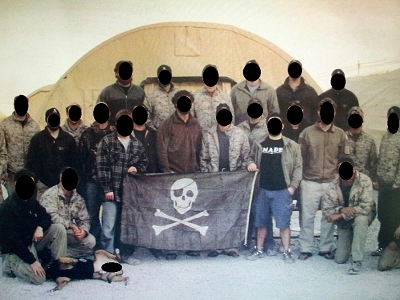After months of investigation, the U.S. Special Operations Command (SOCOM) has finished its comprehensive review into the professionalism and ethical issues in the Special Operations community.
The 69-page report found that Special Operations units are too focused on being lethal on the battlefield and deploy as much as possible. As a consequence, what might appear as banal (for example, professional development) is overlooked. Moreover, the report found that high-performing senior enlisted leaders are often plucked for instructor positions to the detriment of their teams.
SOFREP was the first to report back in 2018 that the Department of Defence (DoD) had ordered an official investigation on the SOF community. The decision was motivated by a string of repetitive scandals that brought America’s Special Operations units out of the shadows and into the limelight for the negative reasons. The Naval Special Warfare (NSW) was in the undesirable position to be the one where the majority of issues originated (Chief Eddie Gallagher’s trial, the murder of Staff Sergeant Melgar, drug issues in SEAL Team 10, war crimes accusations in SEAL Team 6, just to name a few). NSW has been trying to fix its cultural problem by implementing a series of initiatives.
The reviewers argue that SOF operators are set for potential failure even while in basic training. “Several SOF career fields,” the report states, “offer paths for direct accession and are segregated with other SOF candidates during initial entry training.” Here the report refers to initiatives such as the Navy’s Division 800 initiative, where candidates with Naval Special Warfare (Navy SEALs and Special Warfare Combatant-Craft Crewmen) or Special Operations (Explosive Ordnance Disposal (EOD) and Navy Divers) contracts are pooled together in basic training. Such segregation can “possibly foster an unhealthy sense of entitlement as a result of special treatment and facilities,” according to the report.
It’s no lie that Special Operations and elite units often have a “special aura” around them. Whether that’s because of their more demanding training, more fancy and cool gadgets, or more tactically difficult missions, is not the issue. It takes humility and maturity to understand and acknowledge that tough training, cool gear, and special missions don’t make you better. They might make you more effective and lethal, but not better. The support personnel who puts in the hours to make sure the intel, food, vehicles — you name it — is there or the conventional units that pull security, cordon a compound, or act as IED baits are equally good in their missions. It’s the mission that is special, not the men. An important distinction that is often overlooked.
Already have an account? Sign In
Two ways to continue to read this article.
Subscribe
$1.99
every 4 weeks
- Unlimited access to all articles
- Support independent journalism
- Ad-free reading experience
Subscribe Now
Recurring Monthly. Cancel Anytime.











COMMENTS